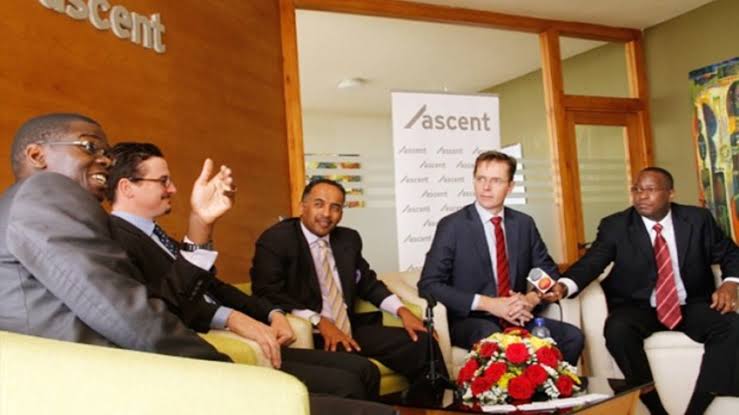A statement from Sanari Capital, the South African private investment company, says that the first closing of the Sanari 3S Growth Fund was for $27.4 million.
Investments in South African businesses that are expanding quickly and have the potential to do so throughout Africa and the rest of the world are preferred by the private equity industry.
Sanari 3SG will invest in established and growing businesses in industries that benefit from Sanari’s thematic focus areas. This is so that it can use its expertise in investing in founder-run, owner-managed, and family-owned businesses.
The fund is named after Sanari’s proprietary framework for developing sustainable, scaleable, and saleable (SS&S) firms. It is the manager’s second fund, but the first one is targeted at institutional investors (3S).
The CEO of Sanari, Samantha Pokroy, said, “We are happy to reach this milestone because it recognizes Sanari’s purpose-led strategy, which is built on expertise and our unique brand of creative, disciplined investment that attracted large amounts of commercial money to the fund.” We value the belief in and support of our investors for our growth-stage PE strategy. “The fact that pension funds are stepping up to help the real economy and emerging businesses in order to generate both social and financial benefits excites us.”
More than 30% of the first closure funds have already been invested by the newly created fund, with two investments being kept until closing and a third to be revealed soon. The fund also meets the requirements of the 2X Challenge, which seeks investments from private investors and development finance organizations to support women’s leadership and empowerment in the global economy.
Read Also: Adobe acquires Figma in a $20 billion deal
Sanari Capital Invests in Sensor Networks, an IoT company
Sanari Capital says that its investment in Sensor Networks, a provider of Internet of Things (IoT) services that aid insurers and their clients in managing their risks, has come to an end.
Sanari Capital (“Sanari”) announces that it has finished its investment in Sensor Networks, an Internet of Things (IoT) business formed in South Africa. The ASISA ESD Fund and Series A investors 4Di Capital Sanari Capital, a South African private equity investment firm focused on founder-run, owner-managed, and family-owned firms with a strong growth objective joined in leading the 13 million ZAR (1.2 million USD) Series B round.
In 2015, businessman Mark Allewell established Sensor Networks in Cape Town. With Sensor Networks’ low-cost smart sensor technology and one-of-a-kind IoT platform, insurance companies can collect relevant, real-time data that can be used to make accurate predictions. By doing this, insurance companies can better manage risk and make more detailed profiles of different types of customers.
Sensor Networks’ Growth with Sanari
Sensor Networks is starting a big ramp-up phase. They are focusing on the home insurance market in particular. The company is already well-established in its market. With the help of Sanari, Sensor Networks will be able to grow and create new products.
Sensor Networks, which provide proven, direct, cost-saving and convenient benefits to insurers and their clients, are a highly attractive investment for Sanari. “We are delighted to partner with such an experienced and accomplished founder-management team,” says Sanari CEO Samantha Pokroy.
As Sensor Networks moves into its next growth phase, we expect the company will realize substantial benefits from our “3S” approach focused on sustainability, scalability, and saleability. “The market opportunity for Sensor Network’s existing products is already substantial, and we see the company further leveraging its platform across new use cases and accessing new markets through existing clients,” Pokroy adds.
Mark Allewell, CEO of Sensor Networks, says: “Our goal is to be the pre-eminent African IoT insurance platform.” Having Sanari, the ASISA ESD Fund, and 4Di on board at this stage gives us access to valuable insurance insights, business experience and networks. The Sanari team’s experience with growth companies, both locally and internationally, was an important factor as Sensor Networks embarks on our next growth phase. ”
Greg Macfarlane, investment head at Edge Growth, which manages the ASISA ESD Fund, says: “The Internet of Things is an important puzzle to solve and an exciting growth opportunity for the insurance industry to harness.” Service providers that are able to integrate smart sensors into their product offerings will significantly reduce their risk while fostering innovation and creating access to rich sources of data. ”
This comes just a few months after they were awarded the Technology Deal category at the PEA for their investment in LightWare LiDAR.
Safaricom and Nokia collaborate on Africa’s first 5G slicing trial
Sanari Joined an Experienced Management Team as a Growth-stage Private Equity Investment
The award highlights Africa’s incredible potential to give to the world while also highlighting the expanding significance of technology and Africa’s place in it. Sanari joined with an experienced management team as a growth-stage private equity investment to bring both the funding necessary to launch its global expansion and our method of creating businesses that are sustainable, scaleable, and saleable (Sanari 3S Approach). The management team at LightWare liked the Sanari 3S Approach because it helped them grow quickly but in a sustainable, methodical way and focused on getting things done.
LightWare provides “eyes to machines,” designing and producing the world’s smallest and lightest precision LiDAR systems for use in drones, robots, IoT, industrial IoT, smart cities, and other applications. LightWare is already known around the world as a major player in the fast-growing market for LiDAR sensor technology. The money from Sanari puts this African technology on the world stage and speeds up research and product development to meet the growing demand for small LiDARs.




